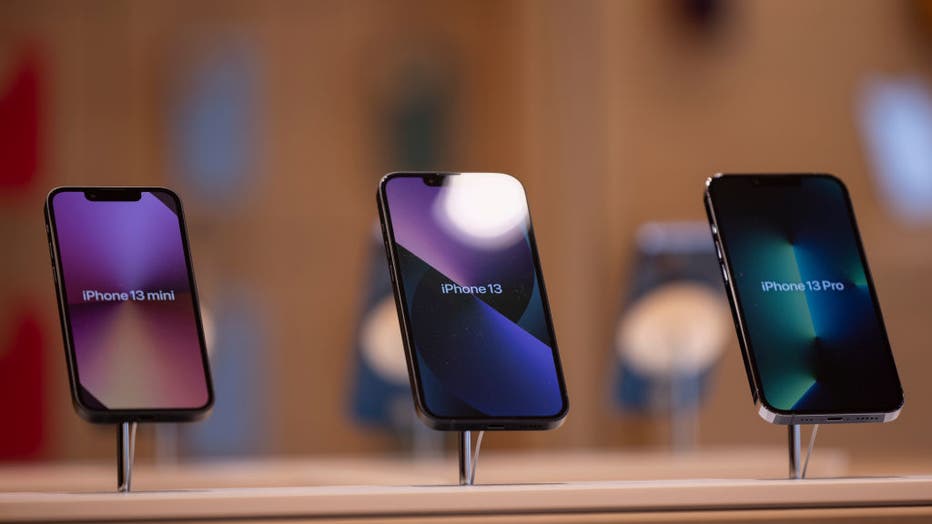LOS ANGELES – President Donald Trump’s sweeping “reciprocal” tariff announcement is sending shockwaves through global supply chains—and Apple may be one of the biggest companies in the crosshairs.
Apple’s iPhones, iPads, and MacBooks are largely manufactured in Asia, with final assembly concentrated in China and increasingly in India and Vietnam. With Trump’s new tariffs slapping a 54% import duty on Chinese goods, 46% on Vietnamese imports, and 26% on Indian products, the cost of bringing iPhones into the U.S. just skyrocketed.
Inside Apple’s global production footprint
The backstory:
The majority of iPhones are assembled in Zhengzhou, China, often called “iPhone City,” where Foxconn operates massive facilities with more than 350,000 workers and capacity to produce up to 500,000 iPhones per day, according to The New York Times. Foxconn also has large plants in Shenzhen.

FILE – Iphone 13’s on display during a press preview of Apple’s new Knightsbridge store on July 26, 2022 in London, England. (Photo by Dan Kitwood/Getty Images)
Apple has been diversifying production to India, where Foxconn is investing up to $1 billion to expand assembly, and to Vietnam, where Apple has increased supplier investments. Tim Cook recently confirmed the company is exploring Indonesia as a new hub, meeting with that country’s president in April 2024.
Apple’s supply chain also includes partners in Thailand, Malaysia, South Korea, Singapore, and the Czech Republic. Some component manufacturing takes place in Kentucky and Texas, but final assembly of iPhones remains overwhelmingly offshore.
How Trump’s tariffs are hitting Apple
By the numbers:
After the April 2 announcement, Apple’s stock plunged over 9%, wiping out more than $300 billion in market value—the company’s worst single-day loss since 2020. Tech analyst Dan Ives of Wedbush called the new tariffs “worse than the worst case” for Apple and warned that the company’s China-heavy supply chain faces “demand destruction.”
Trump has not ruled out exemptions for companies like Apple, but so far no relief has been granted.
How Apple is responding
What’s next:
In February 2025, Apple announced a $500 billion investment in the U.S. over four years, including the construction of a new server factory in Houston, expected to open in 2026 and create thousands of jobs. The plant will support Apple’s AI infrastructure but will not immediately offset iPhone production needs.
CEO Tim Cook said Apple remains “bullish” on America’s future and is working to reduce its reliance on China. But analysts say large-scale shifts in Apple’s supply chain will take years.
The Source: This report draws on verified reporting from the Associated Press, FOX Business, The New York Post, The New York Times, Business Insider, and Apple’s own public announcements. Each source is linked for transparency and updated context. Apple has not issued a new statement since the tariff announcement.










